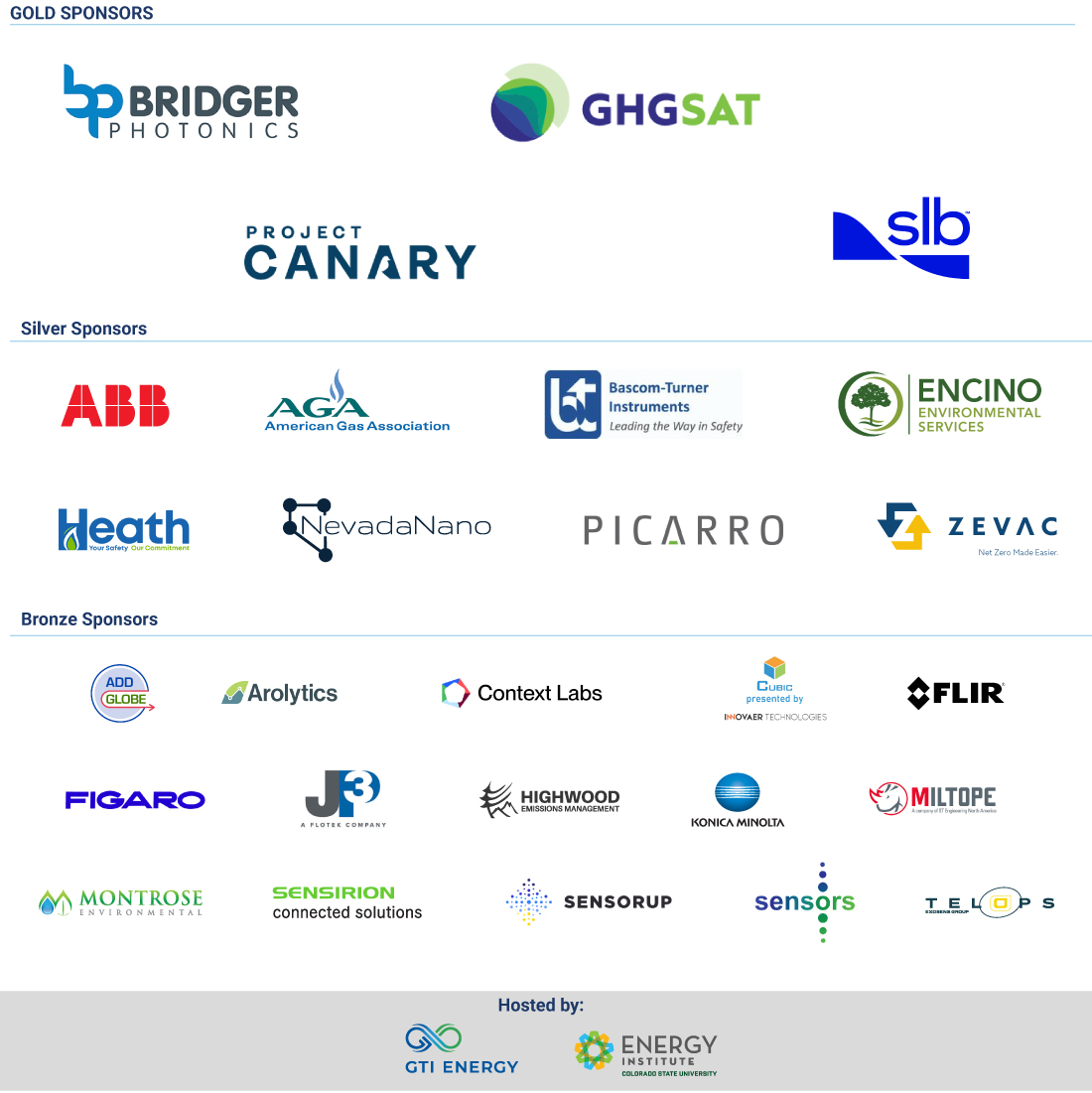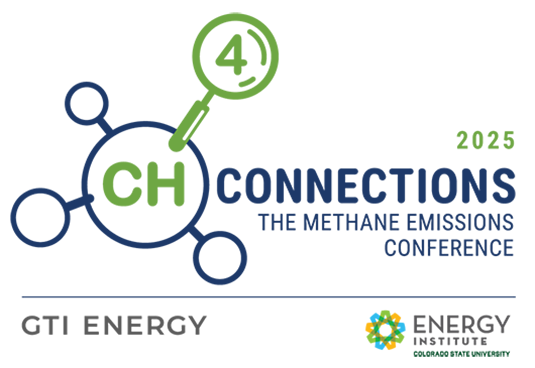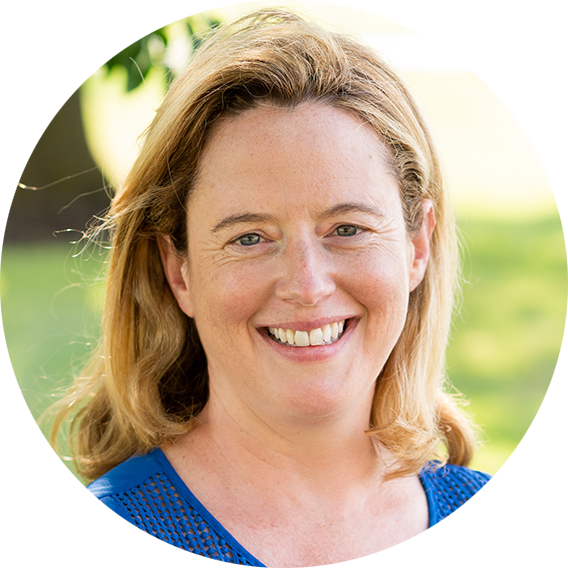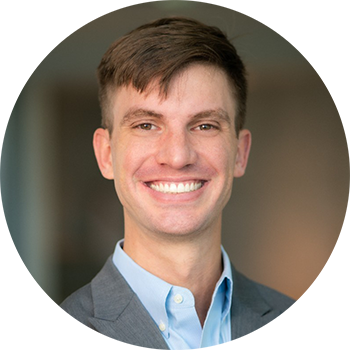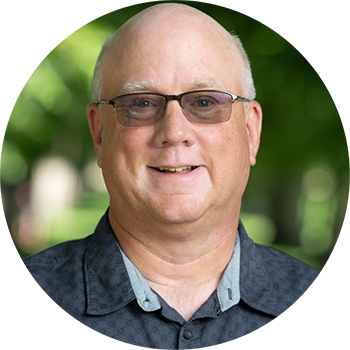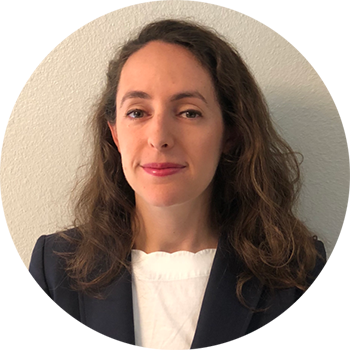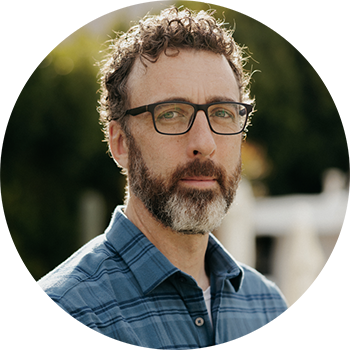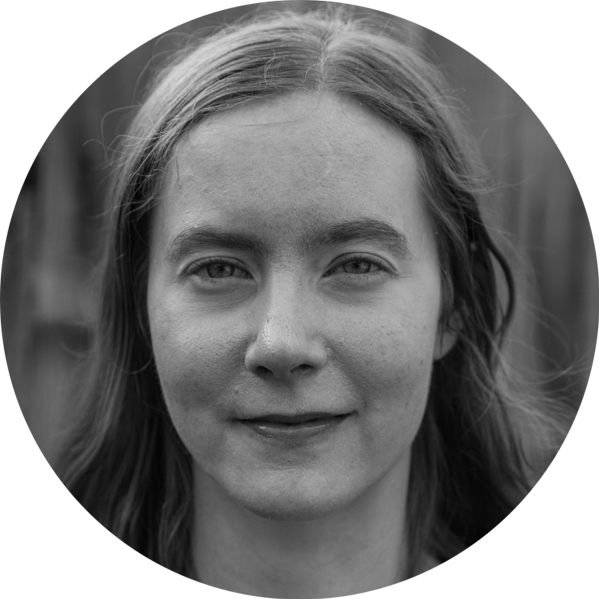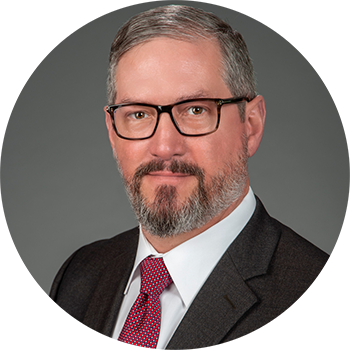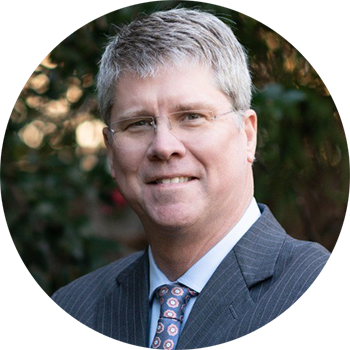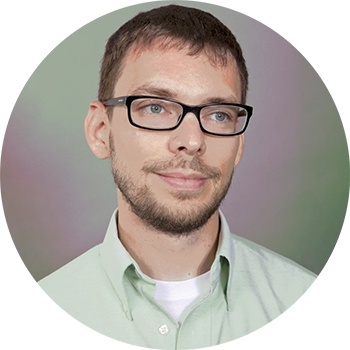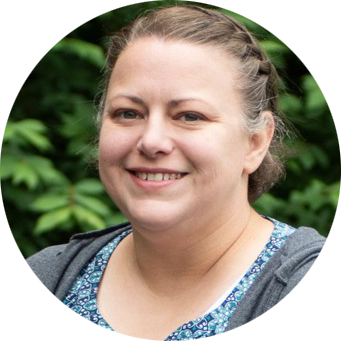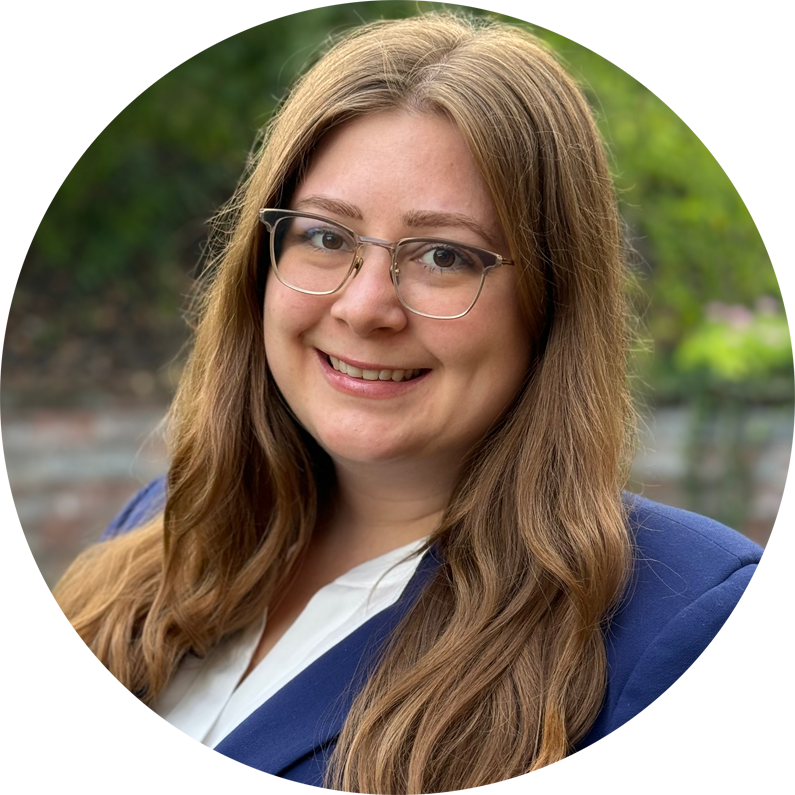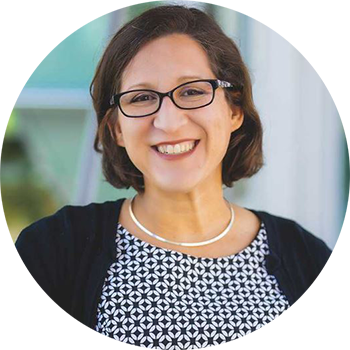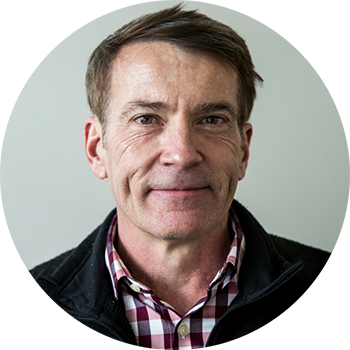October 8-9, 2025
Colorado State University's Lory Student Center | Fort Collins, Colorado
Speakers
Tarek Abichou
Professor of Civil and Environmental Engineering
Florida State University
Tarek Abichou is a Professor of Civil and Environmental Engineering at Florida State University. He earned his B.S., M.S., and Ph.D. from the University of Wisconsin–Madison. His research centers on municipal solid waste (MSW) landfills: designing, analyzing, and testing geotechnical components of waste containment systems, and, above all, quantifying, modeling, and mitigating methane emissions. Before academia, he served as a full-time consulting engineer for more than five years and continues to advise federal and state agencies and private firms.
Abichou has been at the forefront of measurement and modeling of landfill emissions. His team combines inverse plume modeling with ambient methane concentration measurements collected by three complementary approaches: ground-based surface emission monitoring (SEM), above-ground drone SEM, and downwind plume monitoring. He has conducted Tracer Correlation Method (EPA OTM-33A) campaigns at landfills across the United States: the TCM is a benchmark used to “ground-truth” technologies that estimate total landfill emissions.
He developed SEM2Flux, which integrates SEM and wind data to localize and quantify surface methane fluxes. His team also developed LandSEM, a coupled water–heat–gas–oxidation model for landfill soil covers across climates, to predict methane oxidation under field conditions. Recent work using SEM2Flux with extensive ground and drone datasets shows that estimated total emissions do not correlate well with simple SEM indicators (e.g., exceedances per acre, data points per acre, or mean ppm per acre) and can depend strongly on the serpentine path executed during SEM (e.g., inclusion of pipe penetrations).
Internationally, Abichou serves with the UN Environment Programme’s International Methane Emissions Observatory (IMEO) as a Senior Waste Scientist advisor and waste-sector lead, advancing measurement-based strategies, protocols, and campaigns. Across research and practice, his goal is pragmatic: turn high-quality measurements and physics-based models into actionable guidance that helps operators cut methane while maintaining safe, reliable landfill operations.
Katrina Benedict
Sr. Client Executive – Energy Vertical
DT Select
Dell Technologies
Katrina Benedict serves as a Senior Client Executive in Dell Technologies Select, a specialized business unit dedicated to supporting the world’s largest organizations with cutting-edge technology strategies. With more than three decades of experience across financial services, consulting, and technology, Katrina has consistently driven customer outcomes by leading global teams of sales, pre-sales engineering, services, and partner alliances. Her leadership spans traditional and industrial IT, process controls, security, high performance computing (HPC), and, increasingly, artificial intelligence.
As a trusted advisor, Katrina partners with energy sector clients to leverage Dell Technologies’ comprehensive portfolio and ecosystem—transforming operational efficiency, resilience, and sustainability through advanced IT solutions. She is passionate about nurturing the next generation of IT talent and championing women in technology, actively mentoring within Dell.
Based in Denver, Katrina enjoys travel, outdoor adventure, and spending time with her family, friends, and two energetic German Short-Haired Pointers.
Milind J. Bhatte, PhD
Manager
Methane Measurement
ConocoPhillips
Milind Bhatte currently leads the methane measurement and reporting teams for ConocoPhillips’s L48 business unit including the implementation of the OGMP program. Milind has B.S., M.S., and Ph.D. degrees in Chemical Engineering and has 35 years of progressive environmental experience, the last 28 years with ConocoPhillips with a primary focus on air quality issues. His experience includes leading environmental teams in refining, transportation, projects, and upstream sectors for ConocoPhillips.
Erin Blanton
Vice President
Zero Emissions Systems
GTI Energy
Erin Blanton is the Vice President, Zero Emissions Systems at GTI Energy. Erin Blanton leads GTI Energy’s methane emissions mitigation solutions strategy and focuses on the role of natural gas infrastructure in facilitating energy transitions towards a net-zero future. Erin joined GTI Energy from Columbia University’s Center on Global Energy Policy, where she led the Natural Gas Research Initiative and the Center's ESG research. She has extensive experience advising financial professionals on energy markets and investments. Erin holds a Master’s degree from Columbia University’s School of International and Public Affairs and a B.A. in economics from Cornell University.
Carter Browning
Facilities Engineer
Devon Energy
Carter Browning is a Facilities Engineer at Devon Energy, where he has spent over eight years driving improvements in environmental performance and operational efficiency. With more than thirteen years of experience in the oil and gas industry—including five years at Halliburton—Carter has developed a comprehensive understanding of both field operations and the integration of emerging technologies.
At Devon, Carter is responsible for greenhouse gas inventory reporting, ensuring accuracy and compliance in the company’s environmental disclosures. He is deeply involved in the development and execution of methane mitigation and monitoring strategies, collaborating across teams to identify and implement solutions that reduce emissions and support Devon’s sustainability goals.
Carter earned his Master of Science degree in Industrial Engineering from the University of Oklahoma, providing him with a strong background in process optimization and systems analysis. His expertise includes evaluating advanced detection systems, leveraging data analytics, and applying best practices to enhance emissions management.
Throughout his career, Carter has focused on practical, results-oriented approaches to environmental challenges, supporting Devon’s progress in emissions reduction and operational excellence. He is dedicated to continuous improvement and the adoption of innovative practices within the oil and gas sector.
Daniel Cusworth
Science Director
Carbon Mapper
Daniel Cusworth is the Science Director for Carbon Mapper. Carbon Mapper’s mission is to drive greenhouse gas emission reductions by making methane and carbon dioxide data accessible and actionable. Daniel oversees algorithm development, validation, analysis, and applications of airborne and satellite greenhouse gas datasets. He was formerly a Data Scientist at the NASA Jet Propulsion Laboratory and a Research Scientist at University of Arizona and worked on quantification of anthropogenic carbon dioxide and methane emissions from regional to facility scales. He received his B.S. in Applied Math/Atmospheric Sciences at UCLA and Ph.D. in Atmospheric Chemistry at Harvard University.
Bruce Draper
Chair & Professor, Dept. of Computer Science
Colorado State University
Bruce Draper is the Chair of the Department of Computer Science at Colorado State University (CSU), a position he has held since Fall 2023. Before that, he spent four years (2019-2023) as a Program Manager in the Information Innovation Office (I2O) of the Defense Advanced Research Projects Agency (DARPA), where he created and managed projects in Human-AI teaming, Adversarial AI, and Geometric Theories of Machine Learning, among other topics. He was awarded the Distinguished Service Medal for his work at DARPA, and he still holds a TS/SCI security clearance. For 23 years before that he taught and conducted research in computer vision and machine learning as a Professor in the CS department at CSU, beginning as an Assistant Professor in 1996. He is best known for research in reinforcement learning for the control of computer vision, real-time object tracking, biometric face recognition, computational models of human vision, and vision for Human-AI teaming. He served as the General Chair of the Conference on Computer Vision and Pattern Recognition (CVPR), in 1999 and as the computer vision area chair for the International Conference on Machine Learning (ICML) for three years (2000-2002). He is currently working with colleagues in CS on an ARPA-H sponsored project to apply and extend Human-AI teaming techniques to improve rural health care in the U.S. and with colleagues in the Math Department to better understand the mathematical patterns underlying modern machine learning techniques (transformer networks, diffusion networks, and convolutional networks).
Lesley Feldman
Director, Research and Analysis
Methane Pollution Prevention
Clean Air Task Force (CATF)
Lesley Feldman is Director, Research and Analysis on the Methane Pollution Prevention team at Clean Air Task Force (CATF). Lesley advances CATF’s mission by providing policy and research analysis and fostering international engagements – expanding awareness of methane emissions and supporting informed policy decisions on a global scale. Lesley has provided technical support for methane regulations in the U.S. (both at the state and federal levels) and internationally (including in Nigeria, Ghana, Ecuador, and Argentina). In addition, she has managed the program’s research on the health impacts of air pollution from oil and gas.
Bailey Fosdick
Senior Manager
GTI Energy
Bailey Fosdick is a Senior Manager at GTI Energy, where she leads a team of data scientists driving cross-functional initiatives that harness statistical modeling, data science, and artificial intelligence to solve complex challenges in the energy industry. She plays a central role in GTI’s methane emissions research, low-carbon transportation solutions, and efforts to improve the efficiency and safety of local distribution company operations.
Prior to joining GTI Energy, Dr. Fosdick was an Associate Professor at the Colorado School of Public Health in the Department of Biostatistics & Informatics and at Colorado State University in the Department of Statistics, where she led a highly productive research group focused on developing statistical methods to analyze network data. She holds her BS in Mathematics from Colorado State University and her PhD in Statistics from the University of Washington.
James Garcia
Program Manager, Health, Environmental, Safety & Integrity, Environmental – ACER / QMRV
Williams Companies
James Garcia is a Program Manager at Williams Companies, where he leads the execution of the company’s methane emission reduction strategy and the QMRV program - an essential pillar sustaining the NextGen Gas platform. His work supports the advancement of Williams’ Decarbonization and Differentiated Gas strategy, helping to deliver cleaner energy across the United States.
With over 20 years at Williams, James has held various leadership roles across engineering, project management, construction, operations, supply chain, and environmental disciplines nationwide. He holds a Bachelor of Science in Electrical Engineering from Texas A&M University.
Focused on empowering individuals through education and access to a better quality of life, James is deeply engaged in the Tulsa community. He serves on the boards of Leadership Tulsa and the Tulsa Glassblowing School and sits on the Executive Committee for Blood Cancer United of Tulsa.
James lives in Tulsa, Oklahoma, with his wife, Ayda, and their two children. When he’s not working or traveling for ECNL soccer games, he enjoys archery, golf, and exploring new towns across the country.
Fiji George
Senior Director, Climate & Sustainability
Cheniere Energy
Fiji George is the Senior Director for Climate & Sustainability at Cheniere Energy Inc. and has more than 30 years of management and technical experience covering corporate climate and sustainability strategies across natural gas value chain- exploration/production, gas processing, transmission & storage, and liquified natural gas (LNG).
Mr. George served on multiple National Academies of Sciences Engineering and Medicine (NASEM) and National Petroleum Council (NPC) study committees. He is a co-author on multiple peer-reviewed scientific papers, design of novel research collaborations such as Energy Emissions & Modeling Data Lab (EEMDL), and the architect of the ONE Future Coalition voluntary methane program design. He serves as a Board Member of the North American Energy Standards Board (NAESB), and a member of the University of Texas at Austin’s Petroleum and Geosystems Engineering External Advisory Committee. Prior to Cheniere, held technical and management corporate positions at various oil and gas firms. He holds a master’s in Civil (Environmental) Engineering from Texas A&M University and a bachelor’s in Mining Engineering from Anna University, India.
Andy Gruel
Supervisor
Policy Innovations Unit of the Colorado Air Pollution Control Division
Colorado Department of Public Health and Environment
Andy Gruel is the supervisor of the Policy Innovations Unit of the Colorado Air Pollution Control Division, with a focus on discovery, development, and early implementation of regulations and policies to meet Colorado’s air quality goals. Over the past 11 years, Andy has contributed toward establishment and deployment of many of Colorado’s pioneering oil and gas methane regulations. This has included leadership of technical working groups, coordination of stakeholder engagement, and collaboration with other state agencies and regulatory bodies. He and his team also support Colorado’s programs for annual reporting of actual emissions of methane and other pollutants from all industries. Andy holds an MS from Colorado School of Mines and a BS from University of Colorado Boulder and Wake Forest University.
Amanda Harmon
Director, Zero Emissions Systems
Director, Veritas
GTI Energy
Amanda Harmon is Director, Zero Emissions Systems at GTI Energy and Executive Director of Veritas: GTI Energy’s Methane Emissions Measurement and Verification initiative. She works with a cohort of engineers and scientists focused on decarbonization pathways for the energy sector and supports strategy development of emission measurement to mitigation research and development opportunities. Amanda is a member of the Sustainability Committee within the International Gas Union, Environmental Matters Committee within the America Gas Association, and Renewable Fuels within the Low Carbon Resource Initiative. Amanda’s 16 years in energy research and development has focused on infrastructure integrity, microbiologically influenced corrosion, biomethane, and methane emissions from the natural gas and waste sectors.
Matt Harrison
Senior Principal – Air Quality
Global Methane and GHG Management
SLR International
Matt Harrison began his career with Exxon in refinery and chemical operations, including management roles in Exxon’s Major Projects group. As a Senior Advisor at SLR International, Matt manages technical services for a variety of energy industry clients. He leads teams that provide GHG emissions strategies in field measurements, inventories, and strategies. His work on GHG and methane spans several decades, and includes published and peer reviewed work on national emission measurements and method analysis. His teams provide support to industry consortia groups such as the Appalachian Methane Initiative, and they have lead the composition of many strategic documents for the industry, including the Methane Guiding Principles Best Practices, the protocol of the ONE Future group, the protocols for GTI Veritas, and the protocols for Cheniere’s Quantification, Monitoring, Reporting, and Verification (QMRV) program. His experience includes executive level positions at several companies.
Anna Hodshire
Assistant Professor
Systems Engineering Department
Colorado State University
Anna Hodshire is an Assistant Professor in the Systems Engineering Department at Colorado State University (CSU) and a lead scientist with the Methane Emissions Technologies Evaluation Center (METEC). She leads the modeling group at METEC, currently focused on developing verifiable measurement-informed inventories and working on top down/bottom up reconciliation. As a part of this work, she leads field campaigns and intensive modeling efforts for top down/bottom down surveys and basin-wide surveys of oil and gas emissions of methane. She also helps coordinate graduate student onboarding and recruitment efforts for METEC.
Her research interests are broadly on pollution emission and dispersion, air quality, climate change, and the intersection of planetary health among all these topics. Prior to joining METEC, Hodshire worked at small companies focused on measuring properties of atmospheric aerosols for health and climate applications. Hodshire holds a Ph.D. and M.S. in Atmospheric Science from Colorado State University.
Morgan Hoy
Senior Manager of Policy and Strategy
American Gas Association
Morgan Hoy is the Senior Manager of Policy and Strategy with the American Gas Association. She regularly conducts policy analysis at the nexus of emissions reduction strategies and regulatory frameworks, including a specific focus on energy efficiency and renewable natural gas. Prior to joining AGA Morgan was an Advisor to the Commissioners of the Maryland Public Service Commission. Supplementing her experience in the energy sector, she has a Bachelors of Science in Environmental Science from the University of North Carolina Wilmington and a Masters of Science in Natural Resource Policy from North Carolina State University, as well as being published in a variety of academic journals.
Greg Jones
Director of Sustainability, Energy Policy and Climate Strategy
Southern Company Gas
Greg Jones is Director of Sustainability, Energy Policy and Climate Strategy. In this role, he is responsible for developing sustainability and energy policy strategy and driving internal and external stakeholder engagement related to climate and sustainability for Southern Company Gas.
He oversees the team responsible for developing, coordinating and implementing the company’s Decarbonization and Net Zero strategies, and internal and external ESG reporting. He leads the company’s greenhouse gas emissions reduction initiatives and its participation in environmental policy efforts.
Previously Southern Company Gas manager of Environmental Affairs, Jones has decades of experience engaging with energy industry leaders to develop collaborative positions on rulemaking and legislation at the state and federal level.
After serving in environmental compliance roles for other companies, Jones joined the company in 2009 as a senior environmental specialist, supporting environmental compliance and sustainability programs, policies and procedures.
He earned a Bachelor of Science degree in Environmental Science from the University of Georgia. He currently serves on the ONE Future Board of Directors and is vice chair of the Georgia Industrial Environmental Coalition (GIEC). Previously he served as chair of the American Gas Association’s (AGA) Climate and Sustainability Committee, chair of AGA’s Environmental Regulatory Action Committee and chair of the Institute for Georgia Environmental Leadership (IGEL).
Jim Kibler
Founder, CEO and Managing Member
nextParadigm
Jim Kibler's career spans government, politics, law, policy, business operations, and corporate governance, and witnessed a tremendous amount of change in the way that stakeholders interact. The most successful organizations are those that take the effort to find great ideas and then look for great partners -- usually stakeholders with whom they haven't traditionally worked. That hard work results in terrific outcomes, if the focus is on common goals. Over the years he has built a network of truly good people, a cohort that spans all demographics, and has modeled with them how things should work in our approach to issues and opportunities. We've all learned together and continue to -- because the common ingredient to every successful outcome we've enjoyed starts with understanding common ground, and a vision of shared future. We're committed to work together. We all love to win, together.
Carissa Krey
Air Manager
Occidental Petroleum
Carissa Krey serves as an Air Manager at Occidental Petroleum, bringing over 15 years of expertise in air quality management. Her specialization includes methane emissions, with emphasis on calculation, measurement, and reconciliation processes. Carissa holds a degree in Chemical Engineering from the University of Alberta and has occupied various positions within the oil and gas industry as well as regulatory agencies across the United States and Canada, spanning upstream, midstream, and gas processing operations.
In her most recent capacity, she has partnered with technology providers to design measurement-informed inventories for initiatives such as the State of Colorado verification program and the OGMP in the Rockies region. Carissa leads a team that collaborates closely with both operations and engineering groups to conduct methane measurements, analyze collected data, develop emissions reduction strategies, and refine calculation methodologies for improved accuracy.
Jianghanyang Ben Li
Assistant Professor
Department of Atmospheric and Oceanic Sciences and the Institute of Arctic and Alpine Research
University of Colorado Boulder
Jianghanyang Ben Li is an Assistant Professor in the Department of Atmospheric and Oceanic Sciences and the Institute of Arctic and Alpine Research at the University of Colorado Boulder. He received his Ph.D. in atmospheric chemistry from Purdue University, followed by postdoctoral training at the NOAA Global Monitoring Laboratory before joining CU Boulder. His research focuses on using stable isotopes of greenhouse gases and other trace gases to better understand their sources, sinks, and transformations in the atmosphere. By combining laboratory experiments, field observations, and modeling approaches, his work advances understanding of the atmospheric processes that govern a wide range of trace gases, including both air pollutants and greenhouse gases.
At CU Boulder, Ben is the PI of the Stable Isotope Lab, which specializes in high-precision measurements of the stable isotopic composition of greenhouse gases. In collaboration with NOAA’s Global Monitoring Laboratory, the lab has been measuring methane and carbon dioxide isotopes at dozens of sites worldwide since the 1980s, building one of the most extensive greenhouse gas isotopic records to date. These measurements provide valuable insights into how human activities and natural processes shape changes in the atmosphere and climate, offering direct observational data that helps colleagues across the community assess how global methane and carbon dioxide budget have evolved over time.
Cristina Lopez
Energy Engineer
NaTran R&I
Cristina Lopez is an energy engineer with over five years of experience in the field of low-carbon and renewable gases. She currently leads the gas detection activity at NaTran R&I (formerly RICE-GRTgaz), the research center of France’s main gas transmission system operator. Her work focuses on the detection and quantification of methane and hydrogen emissions using advanced sensor technologies, as well as the reduction of greenhouse gas emissions through a combination of field measurements, lab testing, and modeling.
She also serves as Key Account Manager for clients operating LNG terminals and is actively involved in international R&D collaborations, including GERG, PRCI, and GTI Energy. Her contributions extend to projects such as OPTHYCS on hydrogen transport. A regular speaker at international events—including EGATEC and IGRC —she brings a multidisciplinary and applied perspective to methane emission mitigation.
Driven by a strong commitment to the energy transition, she is known for her proactive, collaborative approach and her ability to bridge research and real-world applications.
David Lyon
Senior Methane Scientist
Environmental Defense Fund
David Lyon is a Senior Methane Scientist II at Environmental Defense Fund based in Longmont, Colorado. David earned a Ph.D. in Environmental Dynamics from the University of Arkansas and has researched methane emissions from the oil and gas industry for almost 15 years. David worked at EDF from 2012 to 2022, managing several research studies including the Barnett Shale and PermianMAP campaigns. In 2023, David joined the U.S. Environmental Protection Agency as a special advisor for the Methane Emissions Reduction Program. In 2024, David was a research scientist at the University of Texas Center for Energy and Environmental Systems Analysis. David rejoined EDF in 2025 with a focus on defending science-based methane regulations and emissions reporting.
Karen Marsh
Founder & President
Lumina Sky Consulting
With more than 20 years of experience in environmental regulations and chemical engineering, Karen Marsh, PE, is the founder and president of Lumina Sky Consulting, a firm dedicated to helping oil and gas operators and technology innovators navigate complex emissions regulations with clarity and confidence.
Before founding Lumina Sky, Karen spent 13 years at the U.S. Environmental Protection Agency’s Office of Air Quality Planning and Standards, where she served as lead rule writer for multiple landmark regulations, including New Source Performance Standards for the oil and gas industry, municipal solid waste landfills, and equipment leak standards for chemical manufacturing facilities and petroleum refineries. She also led groundbreaking efforts to approve alternative technologies for leak detection, paving the way for advanced sensor networks and other innovations now shaping the industry.
Today, Karen leverages that deep regulatory insight to help clients align compliance with progress. Her work bridges policy and technology, guiding operators in selecting solutions that meet environmental goals and helping tech providers gain approvals to bring new tools to market. Known for her calm, collaborative approach, Karen brings big-picture thinking and practical solutions to every engagement—empowering clients to move forward with confidence in an increasingly complex regulatory landscape.
Chris Moore
Senior Manager, Programs
Zero Emissions Systems
GTI Energy
Chris Moore is currently a Sr Manager on the Zero Emissions Systems Team at GTI Energy where he leads many efforts to evaluate new technologies and to explore emissions from the natural gas industry. He currently serves as the Executive Director for the GTI Energy Center for Methane Research, a collaborative group focused on the detection, quantification, and mitigation of methane emissions, acts as the Executive Director for HyRes, a GTI Energy Hydrogen Emissions Research Consortium, and leads a large Department of Energy funded project to quantify methane emissions from the Haynesville Shale basin. Dr. Moore is leading (and has completed) several large ($1M+) DOE and DOT funded projects investigating technologies and evaluation methodologies for leak detection tools for all segments of the natural gas supply chain. He has published over 20 peer reviewed publications and has led large field campaigns resulting in two publications in the journal Nature.
Ryan Peay
Deputy Assistant Secretary
Office of Resource Sustainability
Office of Fossil Energy and Carbon Management
Department of Energy
Ryan Peay is the Deputy Assistant Secretary for the Office of Resource Sustainability in the Office of Fossil Energy and Carbon Management. He sets the strategic direction for the Office of Resource Sustainability and administers the programs, including research and development, engagement, analysis, budget, and natural gas regulation. Previously, Ryan was the Director of Planning and Administration and was responsible for strategic planning as well as coordinating and integrating daily activities across the Office.
Prior to joining DOE, Ryan was a manager at a major consulting firm, focused on strategic planning, financial programming, and budgeting activities. From 2002 to 2007, Ryan served on active duty in the U.S. Army as a Field Artillery Officer in the 101st Airborne Division.
Ryan holds an MBA from the Darden School of Business at the University of Virginia and is a graduate of the Virginia Military Institute with a B.A. in International Studies and Political Science.
Jason Quinn
Operating Director
Energy Institute
Colorado State University
Jason Quinn is the Operating Director of the Energy Institute and a professor in the Mechanical Engineering Department at Colorado State University. His education and research have always been centered on energy, with current work focused on system evaluation of electric transportation, microalgae biofuels, agricultural systems, and fission power systems. Research efforts are dedicated to the development of engineering system models validated through experimentation and leveraged for techno-economic feasibility, life cycle assessment, and resource demand of emerging technologies. Results from modeling work are used to focus research and development efforts to high impact areas. Jason completed a master’s degree at the University of Wisconsin-Madison in nuclear engineering and engineering physics, and a PhD at Colorado State University. In the summer you can find him on the western rivers and in the winter chasing snow in the mountains.
Srijana Rai
Principal Analyst
Zero Emissions Systems
GTI Energy
Srijana Rai is a Principal Analyst on the Zero Emissions Systems team at GTI Energy, where she specializes in energy systems and decarbonization strategies. Her research focuses on methane emissions measurement, reporting, verification, and mitigation across the natural gas value chain, as well as life cycle analysis and greenhouse gas accounting for energy supply chains.
Srijana serves as the Technical Director of GTI Energy’s Veritas Initiative, a leading effort in methane emissions measurement and verification. She also leads a U.S. Department of Energy funded study on upstream storage tank emissions under the iM4 program. She has authored numerous government reports and peer-reviewed publications in high-impact journals.
She actively represents GTI Energy in stakeholder meetings and at national and international conferences, sharing insights and advancing dialogue on methane emissions accounting and reductions. In recognition of her leadership and contributions, Srijana was named a Rising Star at the 2024 Women’s Energy Summit in Chicago. She holds an M.S. in Civil and Environmental Engineering from Carnegie Mellon University.
Ben Ratner
Executive Director
Center For Carbon Transition
JPMorgan
Ben Ratner is an Executive Director in the Center For Carbon Transition (CCT), Investment Banking and works out of the Washington DC office. He is focused on supporting our clients in achieving their business objectives on energy innovation and decarbonization. Ben leverages his expertise and experience in the energy transition space to increase investment in solutions that create shareholder value while fostering energy security, reliability, and climate progress. Ben has principal responsibility for supporting CCT’s work with corporate clients in the oil and gas and electric power sectors. In 2024 and 2025, Ben was named to the Washingtonian list of the 500 most influential people shaping policy in Washington DC. Prior to joining JPMorgan at the start of 2022, Ben served in a series of expanding roles at Environmental Defense Fund, leading the organization’s collaborations on methane emission reductions and other topics with energy companies, institutional investors, and banks. Ben started off his career at Latham & Watkins and McKinsey & Co. Ben holds a JD from Stanford Law School and a BA from Rice University.
Selina Roman-White
Senior Engineer
SLR International Corporation
Selina Roman-White specializes in methane and greenhouse gas emissions. Selina has over 8 years of experience in measuring and modeling GHG emissions from oil and gas supply chains. She has led several modeling efforts to conduct life cycle assessments (LCA) of natural gas and LNG supply chains, supporting both industry and Department of Energy. Prior to SLR, Selina led the climate team at Cheniere Energy, focusing on customized supply chain LCA and field deployment of GHG measurement technologies to better characterize emissions and inform mitigation strategies. She led the QMRV R&D campaign across an entire natural gas supply chain, which deployed multiple measurement technologies at production, midstream and liquefaction facilities to assess key differences in inventory vs measured estimates as well as technology performance for different source types. Selina also served as co-chair on the LCA task group for a 2024 National Petroleum Council study, “Charting the Course: Reducing GHG Emissions from the U.S. Natural Gas Supply Chain”, which was a multi-year research effort commissioned by the U.S. Secretary of Energy. Selina specializes in models and analysis to assess facility and supply chain-level emissions intensity and implementing these tools to inform robust climate and emission mitigation strategies. Selina holds her BS in Chemical Engineering from Penn State University and her MBA from the Harbert College of Business at Auburn University.
Shadi Salahshoor
Senior Manager
System Integration and Digital Strategy
GTI Energy
Shadi Salahshoor is a Senior Manager of System Integration and Digital Strategy at GTI Energy, where she leads high-impact R&D initiatives to advance low-carbon energy systems and accelerate technology deployment. She is also the founder and Executive Director of SUSTAIN H₂, a GTI-led coalition advancing long-duration hydrogen storage and cross-sector collaboration.
With a Ph.D. in Petroleum Engineering and a minor in Data Science from the University of Oklahoma, Shadi has held technical and leadership roles of increasing responsibility across research, consulting, engineering, and strategy. In her current role, she develops and drives strategic R&D programs, oversees project execution, leads multidisciplinary teams, and manages stakeholder engagement and funding strategies aligned with long-term growth objectives.
Shadi serves on advisory boards and committees across several industry associations, where she contributes to advancing innovation, equity, and collaboration in the energy sector.
Ryan Steadley
Vice President
Regulatory Affairs
Colorado Oil and Gas Association (COGA)
Ryan Steadley is the Vice President of Regulatory Affairs for the Colorado Oil and Gas Association (COGA) where he leads the Association’s advocacy on matters of air, water, and land. Steadley previously led the American Petroleum Institute’s (API) methane policy work. Prior to his roles with COGA and API, Steadley was the Executive Director of State Review of Oil and Natural Gas Environmental Regulations (STRONGER), a multi-stakeholder nonprofit organization that assisted states with the evaluation and continuous improvement of their regulatory programs.
Daniel Varon
Assistant Professor
Department of Aeronautics and Astronautics and Institute for Data, Systems, and Society
MIT
Daniel Varon is an Assistant Professor at MIT in the Department of Aeronautics and Astronautics and the Institute for Data, Systems, and Society. He received his PhD in atmospheric chemistry from Harvard University in 2020 and held postdoctoral fellowships at Harvard and the Princeton School of Public and International Affairs from 2020 to 2025. His research revolves around satellite remote sensing of atmospheric composition and has led to several advancements in satellite methane monitoring capabilities for the energy sector, including point source quantification methods, high-resolution methane plume imaging with public satellite data, and routine satellite monitoring of total methane emissions from individual oil and gas basins. He has been an Associate Editor for the Atmospheric Measurement Techniques journal of the European Geosciences Union since 2023. He is Model Scientist of the Integrated Methane Inversion (IMI), an open-access cloud-computing tool for quantifying regional methane emissions at high-resolution from satellite observations, and Co-Nested Model Scientist of the GEOS-Chem global chemical transport model.
Sam Wade
Vice President
Public Policy
RNG COALITION
Sam Wade serves as RNG COALITION’s Vice President, Public Policy. Previously Mr. Wade worked as Chief of the Transportation Fuels Branch at the California Air Resources Board, where he oversaw the Low Carbon Fuel Standard (LCFS) program.
His private sector experience includes work in energy policy at a major California utility and time with a bioenergy start-up. Mr. Wade holds a BS in Mechanical Engineering from U.C. Davis, a MS in Mechanical Engineering from the University of Hawaii, and an MPA in Environmental Science and Policy from Columbia University.
Cynthia Wagener
Methane Venture Manager
ExxonMobil
Cynthia Wagener is the Methane Venture Manager at ExxonMobil, where she leads the implementation of the company’s methane reduction strategy across its global upstream operations and OGMP 2.0 reporting requirements. Her team works at the intersection of technology, operations, and policy to help achieve ExxonMobil’s ambition of near zero methane emissions from operated oil and gas assets by 2030.
Cyndi is passionate about turning technical innovation into practical, field-implementable solutions that can improve environmental performance. With over 20 years in the environmental field, Cyndi has held roles in technology, design, regulatory compliance, and corporate environmental policy. She holds a B.S. and M.S. in Environmental Engineering from Louisiana State University and conducted post-graduate research as a Fulbright Scholar at the Swiss Federal Institute of Technology.
Binbin Weng
Presidential Associate Professor of Electrical and Computer Engineering
Williams Chair in Telecommunications and Networking
University of Oklahoma
Binbin Weng is an Associate Professor of Electrical and Computer Engineering at the University of Oklahoma, where he holds the Gerald Tuma Presidential Professorship and serves as the Williams Endowed Chair in Telecommunications and Networking. His research spans both fundamental and applied studies in engineering mid-infrared light to create advanced solutions for modern sensing, imaging, and telecommunications applications. Dr. Weng is an IEEE senior member, and a recipient of the National Science Foundation’s Faculty Early Career Development (CAREER) Award and the University of Oklahoma’s Award for Excellence in Transdisciplinary and Convergent Research. He currently leads a DOE-funded methane monitoring project under the iM4 program (Innovative Methane Measurement, Monitoring, and Mitigation) aiming at developing an integrated, multi-tiered sensing and modeling system for basin-scale early detection of methane leak events in the Anadarko oil and gas production basin.
Bryan Willson
Executive Director
Energy Institute
Colorado State University
Bryan Willson is Executive Director of the Energy Institute at Colorado State University, and the holds the Bryan Willson Presidential Chair of Energy Innovation. He also serves as a Professor of Mechanical Engineering. He served as a Program Director at ARPA-E (Advanced Research Projects Agency – Energy), from 2012-2016 and continues to serve as a consultant / advisor to the agency. Dr. Willson has worked for over 25 years to develop and deploy large-scale technology solutions related to energy, air quality, and human health.
As an entrepreneur, Dr. Willson is co-founder of: Envirofit International, a global company that has developed solutions for clean mobility (direct injection retrofits for 2-stroke cycle engines) and is now manufacturing and distributing clean cookstoves in the developing world; Solix BioSystems, a developer of large-scale production systems for algae-based fuels and specialty chemicals; and Factor(e) Ventures, a venture development firm supporting early stage ventures working on access to energy in the developing world; and Xpower a developer of microgrid technology for the developing world.
In his university role, he has helped to launch or enhance numerous other companies. His research laboratory, the Engines & Energy Conversion Laboratory, has made important contributions in many areas, including: internal combustion engines, oil & gas production technology, advanced electrical grids, advanced biofuels, technology for the developing world, and advanced building technologies. Dr. Willson has worked in over 40 countries.
Hon Xing Wong
Senior Manager, Programs
Zero Emissions Systems
GTI Energy
Hon Xing Wong (Xing) is a Senior Manager, Programs at GTI Energy in the Zero Emissions Systems team where he is Executive Director of the Reliable Affordable Infrastructure for Secure Energy (RAISE) Program and Program Administrator for the Collaboratory to Advance Methane Science (CAMS). He was previously at Columbia University’s Center on Global Energy Policy where he researched climate and energy transition risks. Previously, he held various engineering and site-operations roles with BP in Angola, Egypt, and the UK. He holds a Master of Public Administration in energy and environment from Columbia University and a Master of Engineering in chemical and environmental engineering from Nottingham University.
Daniel Zimmerle
Director, Methane Emissions Program
Energy Institute
Colorado State University
Daniel Zimmerle is the Director of the Methane Emissions Program in the Energy Institute @ Colorado State University. Zimmerle was a principal investigator on seven major studies of methane emissions in the natural gas supply chain, including studies of upstream, midstream, and distribution systems at a nation and/or regional scale, and leads the Methane Emissions Technology Evaluation Center, one of the largest test facilities for natural gas leak detection solutions. Zimmerle’s current research on natural gas emissions includes studies of equipment and pipeline emissions, field studies, and fundamental investigations of commonly utilized several leak detection and quantification methods, including optical gas imaging (OGI), high flow sampling, and downwind methods. He has been an author on over 65 journal papers related to methane emissions. Additionally, Zimmerle also works on energy access and development in rural communities in the developing world and the integration of distributed generation into power systems. An ‘accidental academic,’ Zimmerle’s pre-CSU experience is all industrial. He served as the Chief Operating Officer at Spirae, Inc. and 20 years at Hewlett Packard and Agilent Technologies including experience as both a division general manager and R&D manager, leading organizations in multiple businesses and organizations that included personnel in the US, Ireland, Singapore and other countries. He holds a BSME and MSME from North Dakota State University.
Learn More
Contact the energy conference experts today
